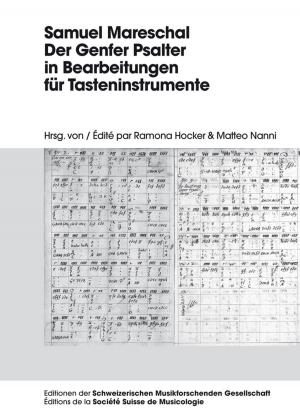Coming of Age in Francos Spain
Anti-Fascist Rites of Passage in Sender, Delibes, Laforet, Matute, and Martín Gaite
Fiction & Literature, Literary Theory & Criticism, European, Spanish & Portuguese, Nonfiction, Religion & Spirituality, Philosophy, History| Author: | Michael D. Thomas | ISBN: | 9781454197287 |
| Publisher: | Peter Lang | Publication: | April 22, 2014 |
| Imprint: | Peter Lang Inc., International Academic Publishers | Language: | English |
| Author: | Michael D. Thomas |
| ISBN: | 9781454197287 |
| Publisher: | Peter Lang |
| Publication: | April 22, 2014 |
| Imprint: | Peter Lang Inc., International Academic Publishers |
| Language: | English |
How could authors not write about the effects of a civil war that tore their nation in two, that divided and destroyed families and friends? They had to tell the story, though they were carefully scrutinized and censored. How could they resist artistically and present alternate voices and visions for the future? Writing is resistance, remembering is resistance. Writing is remembering and selecting those memories that, in these authors’ view, have intense significance in the formation of the self. Sender, Delibes, Laforet, Matute, and Martín Gaite have left a legacy of confrontation and hope. Coming of Age in Franco’s Spain studies the social and psychological damage of the aftermath of the Spanish Civil War and identifies an aesthetic of resistance, a portrayal of emerging adults who rebel with courage and caring that even more mature adults do not show. Whereas the Fascists engaged in the process of «othering», considering certain groups to be enemies, sub-human, deserving death, meriting bondage in slavery, these novels describe protagonists who learn to reach out to «the other». They advocate treatment of the marginalized and persecuted in a manner diametrically opposed to the policies and practices of the Franco Regime. The positive message conveyed is that the human spirit was not completely crushed by the Fascists’ mandate to make all Spanish citizens conform to the Regime’s own «values», but these authors advocate authenticity, creative freedom, universal values, all alive and well, even in the darkest of times; they crafted a blueprint for hope through complexities of the narrative art.
How could authors not write about the effects of a civil war that tore their nation in two, that divided and destroyed families and friends? They had to tell the story, though they were carefully scrutinized and censored. How could they resist artistically and present alternate voices and visions for the future? Writing is resistance, remembering is resistance. Writing is remembering and selecting those memories that, in these authors’ view, have intense significance in the formation of the self. Sender, Delibes, Laforet, Matute, and Martín Gaite have left a legacy of confrontation and hope. Coming of Age in Franco’s Spain studies the social and psychological damage of the aftermath of the Spanish Civil War and identifies an aesthetic of resistance, a portrayal of emerging adults who rebel with courage and caring that even more mature adults do not show. Whereas the Fascists engaged in the process of «othering», considering certain groups to be enemies, sub-human, deserving death, meriting bondage in slavery, these novels describe protagonists who learn to reach out to «the other». They advocate treatment of the marginalized and persecuted in a manner diametrically opposed to the policies and practices of the Franco Regime. The positive message conveyed is that the human spirit was not completely crushed by the Fascists’ mandate to make all Spanish citizens conform to the Regime’s own «values», but these authors advocate authenticity, creative freedom, universal values, all alive and well, even in the darkest of times; they crafted a blueprint for hope through complexities of the narrative art.















